Seyfarth Shaw Survey Finds Positive Outlook Stemming from New Administration’s ‘De-regulate and Dismantle’ Approach to Dodd-Frank
With a commercial real estate executive now in the White House, more than two-thirds of the CRE executives (69%) surveyed by law firm Seyfarth Shaw said they expect President Trump will have an overall positive impact on commercial real estate in 2017.
Rising interest rates continue to dominate concerns for U.S. commercial real estate executives in 2017, according to the law firm’s annual survey of the commercial real estate market. Almost all respondents (98 percent) expect interest rate increases this year, and 77 percent expect multiple rate increases in 2017.
An overwhelming majority of respondents (83 percent) said they are not concerned that an act of domestic terrorism will impact their projects in 2017, compared to 70 percent last year.
In addition, CRE execs polled by the law firm believe “deregulation” and “tax reform” may provide immediate and positive impacts for the industry in 2017. Notably, many survey respondents singled out the new administration’s position on dismantling much of the regulatory infrastructure enacted under the 2010 Dodd-Frank Wall Street Reform and Consumer Protection Act as potentially spurring a new investment boon for the industry.
But along with increased optimism industry execs also are reporting increased investment risk in the CRE market.
The unusual combination of optimistic outlook with wariness over interest rates and other expected changes appears to stem from concerns about rolling back lending safeguards, but also from uncertainty about which of the proposed changes will be enacted and when they’ll go into effect.
In one example of how this greater sense of risk appears to be playing out in the market is in recent 10-Ks (annual reports) filed by REITs and real estate operating companies. Reporting companies are increasingly updating the “Risk Factors” sections of those reports to reflect the numerous possible policy changes and positions associated with the new Trump administration.
President Trump’s name has shown up in the Risk Factors’ section in 40 of 194 real estate-related 10-Ks filed by so far this year through the end of February, a 21% rate, according to CoStar News analysis. By comparison, President Obama’s name showed up in just nine out of 378 real estate related 10-Ks in the first three months of 2009, his first months in office, a 2% rate.
Publicly traded REITs, in particular, appear to be concerned over changes to the tax code and whether or not such changes may adversely impact their ability to continue to qualify as REITs, according to several recent REIT securities filings.
But Ron Gart, a partner in the Real Estate Practice Group of Seyfarth Shaw LLP who co-authored the CRE investor sentiment survey with Christa Dommers, another partner at the firm, said Seyfarth’s findings appear to jive with what is showing up in the 10-Ks.
While the majority of respondents are optimistic, “No one knows how much change is coming, when it is coming or what the changes will be,” Gart said. “That lack of clarity leads to volatility, which leads to risks.”
The same optimistic-but-cautious sentiment found in Seyfarth Shaw’s survey was also apparent among those attending the Structured Finance Industry Group’s annual convention this week in Las Vegas.
Attendees at the conference surveyed by S&P Global Ratings reported risk retention rules and other amendments to Dodd-Frank along with Fannie Mae and Freddie Mac reform are among their top concerns, even as most reported they were happy with the “financial” direction taken by the administration.
Scope and Timing of Changes Weigh on Investors’ Minds At the time Seyfarth Shaw conducted its new survey in mid- January, Gart said, “there was clearly an expectation” that changes discussed by the Trump administration would happen sooner rather than later. The longer it takes to implement those changes, though, poses more risk, he added.
In general, people understand how difficult it can be to get a behemoth like the federal government to move in a new direction, Gart said. On the practice side, he said he is seeing clients continue to proceed with deals rather than wait to see what changes may occur, particularly with the Federal Reserve signaling its intent to raise interest rates in 2017, possibly multiple times.
CRE tends to be a very “nuts and bolts” industry, Gart said, with many deals driven by such things as the cost of money (i.e. interest rates) and tax benefits. So with the cost of money expected to go up and tax benefits expected to improve, deals are moving forward despite the current uncertainty.
The ambivalence reflected in both recent surveys is apparent in USAA Real Estate Co., which announced it plans to maintain “a defensive stance in 2017, while actively probing for the right investment opportunities.”
Even against a background of rising optimism, the institutional investor thinks 2017 will be a year of transition.
“History tells us it will be difficult, if not impossible, to make significant progress… within [Trump’s] first year in office,” USAA Real Estate reported in its “US Property Market Outlook, 2017” released last week. “As the real estate cycle enters its late stages, we believe the risk remains to the downside from a real estate valuation perspective,” it concluded.
By Mark Heschmeyer
